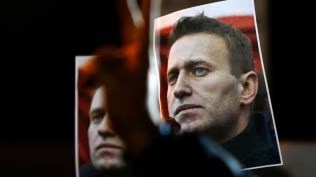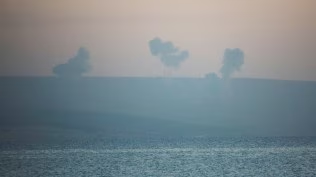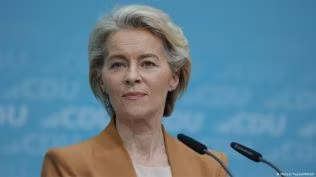Belarus’ election reinforces authoritarian leader’s rule despite the opposition call for its boycott
Belarusian authorities on Monday announced preliminary results from parliamentary and local elections in which only candidates loyal to the country’s authoritarian leader were allowed to compete and that the opposition called on voters to boycott.
The vote further cemented the 30-year rule of President Alexander Lukashenko, who declared his intention to seek yet another five-year term in a presidential election next year.

Most candidates belonged to the four officially registered parties: Belaya Rus, the Communist Party, the Liberal Democratic Party and the Party of Labour and Justice. The Central Election Commission said that 73 per cent of the country’s 6.9 million eligible voters cast ballots, filling all 110 seats in the national parliament and 12,514 seats in local councils.
Sunday’s balloting was the first in Belarus since the contentious 2020 vote that handed Lukashenko his sixth term in office and triggered an unprecedented wave of mass demonstrations that brought hundreds of thousands into the streets. More than 35,000 people were arrested, thousands were beaten in police custody and hundreds of independent media outlets and nongovernmental organisations were shut down and outlawed.
Lukashenko has relied on subsidies and political support from his main ally, Russia, to survive the protests. He allowed Moscow to use Belarusian territory to send troops into Ukraine in February 2022.
Russian President Vladimir Putin on Monday congratulated Lukashenko on “the confident victory of patriotic forces of Belarus” that helped ”ensure internal political stability”.
Belarusian opposition leader Sviatlana Tsikhanouskaya, who is in exile in neighbouring Lithuania after challenging Lukashenko in the 2020 presidential election, called for a boycott of the vote that she dismissed as a “senseless farce”. In a surprising development in the tightly controlled nation of 9.5 million, Tsikhanouskaya’s video address was broadcast across Belarus on Saturday after opposition activists managed to gain access to some 2,000 screens used for street advertising. The Viasna Human Rights Centre reported Sunday that a number of employees at the company that owned the screens were quickly arrested.
The election took place amid a relentless crackdown on dissent. Over 1,400 political prisoners remain behind bars, including leaders of opposition parties and renowned human rights advocate Ales Bialiatski, who won the Nobel Peace Prize in 2022.
Ahead of the vote, Lukashenko alleged without offering evidence that Western countries were pondering plans to stage a coup in the country or to try to seize power by force. He ordered police to beef up armed patrols. The opposition says the early balloting that began Tuesday offered fertile ground for the vote to be manipulated, with ballot boxes unprotected for five days. Election officials said Sunday that over 40 per cent of voters had cast ballots during early voting.
After the vote, Belarus is set to form a new state body — the 1,200-seat All-Belarus Popular Assembly that will include top officials, local legislators, union members, pro-government activists and others. It will have broad powers, including the authority to consider constitutional amendments and to appoint election officials and judges.
Lukashenko was believed a few years ago to be considering whether to lead the new body after stepping down, but he has changed track and announced on Sunday that he will run in next year’s presidential election.
Belarus for the first time also refused to invite observers from the Organisation for Security and Cooperation in Europe to monitor the election. Belarus is a member of the OSCE, a top trans-Atlantic security and rights group, and its monitors have been the only international observers at Belarusian elections for decades.
The US State Department described Sunday’s vote as a “sham”, with spokesman Matthew Miller noting that it was held “in a climate of fear under which no electoral processes could be called democratic”.
Disclaimer: The copyright of this article belongs to the original author. Reposting this article is solely for the purpose of information dissemination and does not constitute any investment advice. If there is any infringement, please contact us immediately. We will make corrections or deletions as necessary. Thank you.




